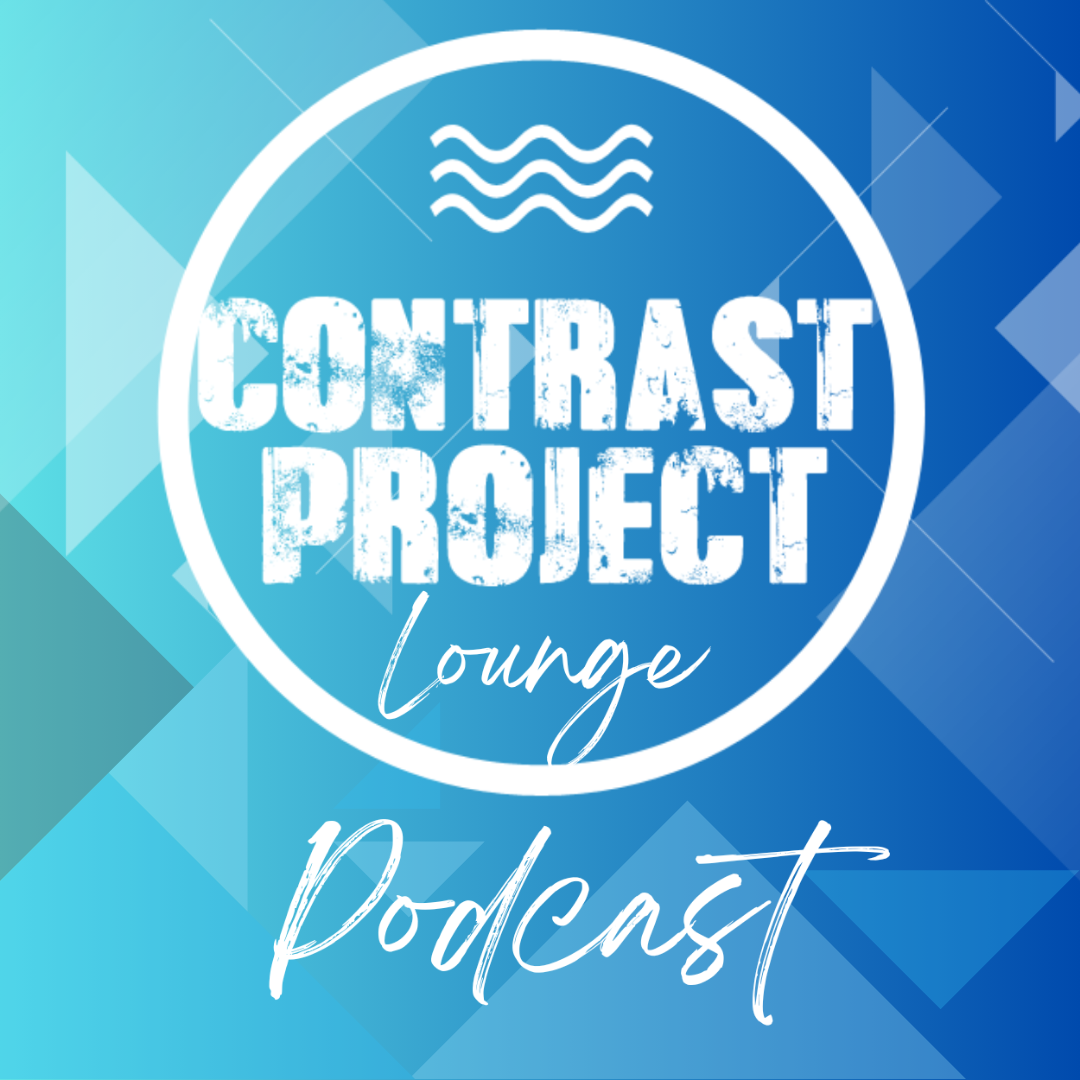*This podcast originally aired Juneteenth 2024
Introduction: A Celebration… and a Reckoning
Juneteenth history isn’t just about the past. It reflects the current battle for truth, dignity, and recognition. These issues persist in a country that still struggles to tell the whole story. On this special livestream panel of The Contrast Project Lounge Podcast, the team sat down. Host Tracy Rigdon, co-host Jim Alabiso, award-winning journalist Shelton Hull, and community leader Pastor Reese Dickerson all participated. They aimed to unpack the layers of Juneteenth. They discussed its delayed proclamation of freedom. They also covered its modern resistance against cultural erasure.
But this wasn’t just a history lesson. This episode turned into a full-spectrum cultural excavation—bridging gospel and funk, freedom and frustration, jazz and Jesus. Because you can’t talk about Black liberation in America without talking about the music that carried it… and the systems that continue to silence it.
The Truth About Juneteenth History
Let’s get this straight: Juneteenth didn’t mark the end of slavery. It marked the end of the lie. On June 19, 1865, Union General Gordon Granger arrived in Galveston, Texas. This was more than two years after the Emancipation Proclamation. He came to finally enforce freedom for enslaved African Americans. That delay? It wasn’t logistical. It was intentional. Slave owners weren’t rushing to give up free labor.
Juneteenth history is about the gap between law and justice, between proclamation and implementation. That gap is still with us. In education. In housing. In policing. In which stories get taught—and which get buried.
Teaching Juneteenth Is Now a Revolutionary Act
As Shelton Hull noted during the discussion, Juneteenth is being celebrated *more* at the same time it’s being taught less. In many states, including parts of Florida, attempts to teach Black history face censorship. There are curriculum bans or sanitized half-truths. The celebration of Juneteenth has gone federal, but the *teaching* of Juneteenth? That’s become a political minefield.
And that’s the paradox. A holiday that recognizes liberation is now entangled in the very same systems that once denied it. Recognizing Juneteenth without reckoning with its meaning is performative. Hollow. Dangerous.
Music Was- and Still Is- The Messenger
“You can’t talk about Juneteenth and not talk about Black music,” said Reese Dickerson and damn right. Black music is the coded scripture of American resistance. Black music ranges from field songs to freedom chants. It spans gospel to funk and jazz to hip hop. Every note was a declaration of survival. It conveyed identity and rebellion.
Ray Charles took gospel chords into secular love songs. Mahalia Jackson made the sacred sound urgent. Aretha gave the church a backbeat. Al Green blurred the lines between sin and salvation. Black musicians weren’t just making music—they were building the emotional infrastructure of freedom.
Jazz and Jesus in the Same Breath
The conversation on The Contrast Project Lounge drifted. As all great conversations do, it ventured into the seemingly offbeat: the relationship between jazz and Jesus. But it wasn’t off-topic. Jazz, like the Black church, was a refuge. A place where rhythm replaced religion and improvisation became a theology of resilience.
“Jazz and Jesus,” one guest said. That phrase stuck. Because both offered escape. Both offered hope. Both were uniquely American—and uniquely Black. And both have been appropriated, whitewashed, and commercialized while their origins get erased.
The Soundtrack of Suppression and Success
Remember Bobby Caldwell? A white man with a soulful voice that dominated Black urban radio charts. Or the Bee Gees and Peter Cetera? Their music found massive resonance in Black communities—not because of race, but because of *soul*. Music was never meant to be segregated. But the *industry* was.
The conversation illuminated how Black culture has always embraced what feels authentic. The industry tried to divide gospel from funk. It attempted to separate church from club and color from category. Yet, Black listeners found the throughline: truth. And that’s what Juneteenth stands for—truth, no matter how inconvenient.
Freedom Isn’t Federal, It’s Personal
The guests didn’t stop at history or harmony. They talked about freedom as something intimate. Not just national. Not just legislative. But personal. Daily. Fragile. And unfinished.
Reese Dickerson shared how Juneteenth isn’t just a date—it’s a reminder. A push to live with intention. To honor those who carried the weight of survival. To educate kids who are being fed watered-down versions of American history. And to demand systems that don’t just perform equity—but practice it.
The American Dream… for Whom?
The panel also addressed the myth of the American Dream. They discussed how that dream has always been different for Black Americans. For many, freedom wasn’t a finish line. It was a footnote. An asterisk.
Shelton Hull reminded us that economic mobility, home ownership, mental health access—these are still battles. “We’re celebrating freedom on a date that reminds us freedom was delayed. Still is,” he said. The work isn’t done just because a flag waves or a president signs a proclamation.
Self-Care, Humor, and the Sacred Act of Surviving
This episode wasn’t all fire—it had joy. Laughter. Levity. Even a conversation about action figures. Because survival requires both rage and release. Black joy is itself an act of rebellion. Humor is a healing mechanism. Music isn’t just protest—it’s party. That duality is sacred.
One panelist put it best: “You don’t have to agree with someone to love them. That’s what freedom should mean.”
More Than a Hashtag Holiday
This isn’t just another holiday to check off. It’s a call to teach. To show up. To question why some people’s pain gets a parade while others get a curriculum ban.
If Juneteenth history tells us anything, it’s this: freedom doesn’t arrive all at once. It shows up late. It gets resisted. It gets watered down. And it only sticks if people fight for it—again and again.
#Juneteenth #JuneteenthHistory #BlackMusicMatters #JazzAndJesus #AmericanDream #FreedomDelayed #TeachTheTruth #TheContrastProject #CulturalResistance #ModernJuneteenth #BlackJoyIsRadical















Add comment